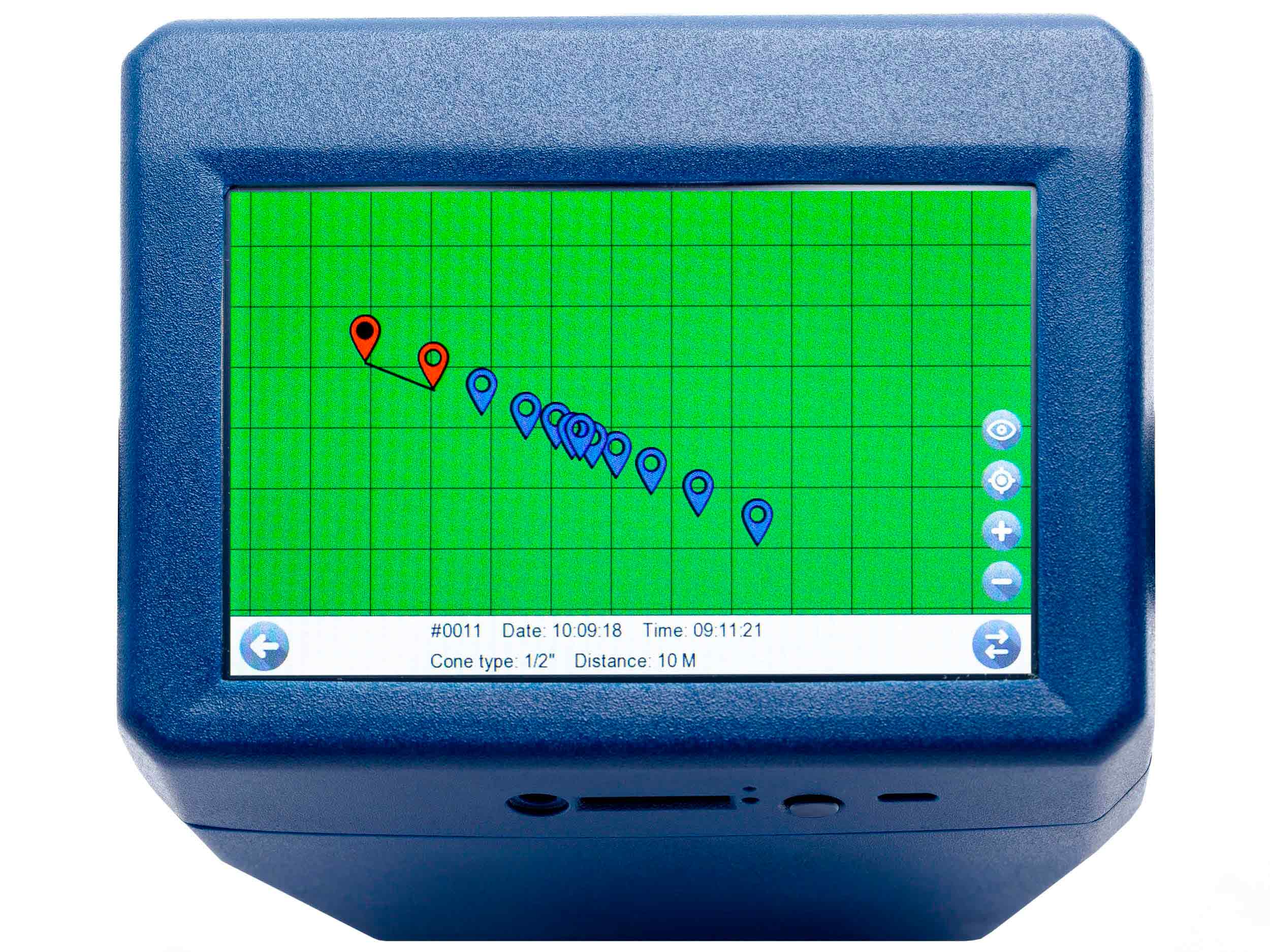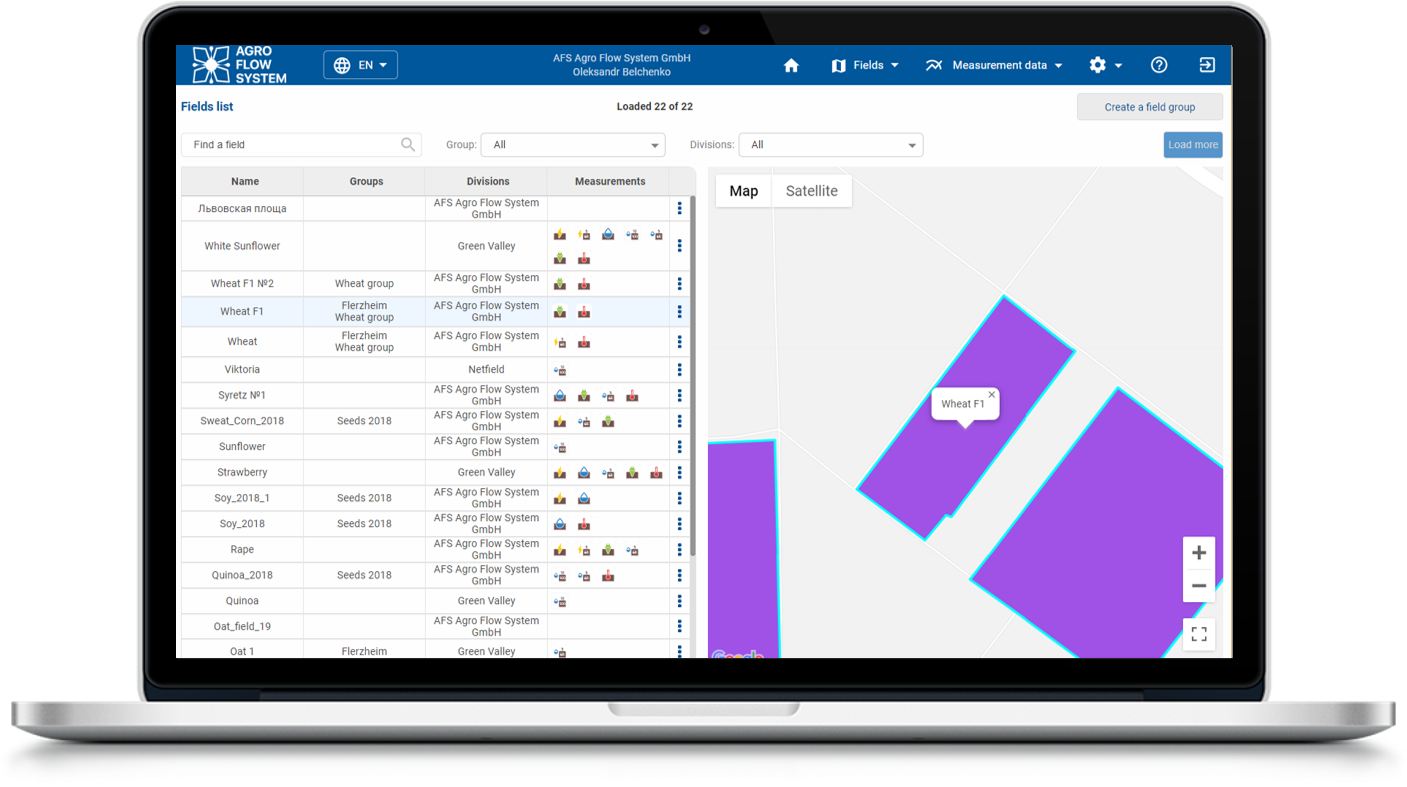

Soil condition, composition and its physical characteristics are important for optimal plant growth and obtaining good yields, since the soil is the main source of nutrition for the crop.
Soil moisture
Excess of soil moisture has a negative effect on plants, since oxygen is displaced from the soil and carbon dioxide accumulates, which results in inhibition and dying of the root system as well as the formation of various plant diseases With insufficient moisture, plants have excessive water stress as well as a shift in physiological activity. Cells and tissues lose their turgor, deep wilt occurs, which results in low productivity and possible death of plants.

Soil compaction
Soil compaction prevents the proper development of the root system of plants, reduces seed germination, worsens aeration during periods of increased humidity, and incurs additional costs associated with tillage.
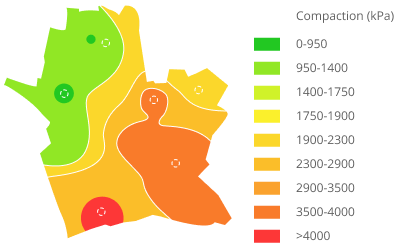
Salinity (EC)
Salinity (the accumulation of salts in the soil) reduces plant growth, causing a decrease in water availability. On saline soils, sensitive crops produce poor crops, and in some cases, crop losses can reach 100%.

Soil Research Logger
Soil Research Logger consists of DS Logger 500 device and a sensor DSM 600. DS Logger 500 is a multifunctional device for measuring soil compaction, air temperature and air humidity. Together with sensor DSM 600, it measures soil temperature, soil moisture and soil conductivity (EC).
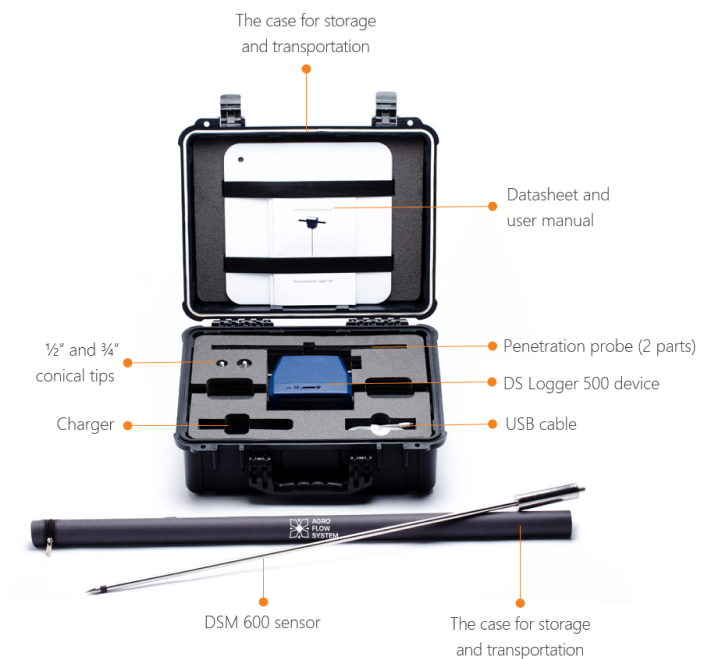
Measurements






Technical specifications
Use the Soil Research Logger during the entire vegetation period for making correct and timely decisions concerning crops.

VWC Soil temperature - °C
Electrical conductivity - μS/cm
Soil temperature - from +5˚С to +40˚С
Electrical conductivity - from 0 to 7000 μS/cm
Soil temperature - ±1˚С
Electrical conductivity - ±5%




The data correctness is also provided with the help of contactless sensors which control every millimeter of the measurement. Inside this clever device there are more than 20 different sensors and this is just the first step towards getting big data in agriculture!

Go to your field and make necessary measurements of soil compaction, soil moisture, soil temperature and electrical conductivity.


Monitor your measurement data in two possible ways - on the device and on the web platform. Choose what suits you best!
All measurement are shown in real time on the device display. Friendly interface is multilingual (English, German, Italian and French) . View data measurements in spreadsheets, graphs and location of measurements on the map when you need it.
All data are available in web platform - Personal AFS Account. Data is automatically sent via sim-card. If your GSM connection is not appropriate, you can download data on computer via usb-cabel and send it to the cloud using AFS software
The best experience of using AFS AGRO FLOW SYSTEM GmbH devices can be obtained with the web platform tailored to fit and complete all features of company’s products. View all data in Personal AFS Account in spreadsheets, graphs, maps in interpolation mode
Create your own fields setting field boundaries on the map or uploading a file with already specified fields

View measurement data by each separate field, a group of fields or a particular device, represented in spreadsheets, graphs and maps

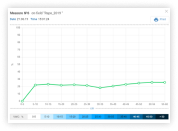
Manage fields and bring them together into a group, manage your staff and devices

Set tasks for accomplishing any of available for DS Logger 500 types of measurements, specifying a performer, coordinates and a deadline of measuring

AFS AGRO FLOW SYSTEM GmbH was established in 2017 and has extensive experience in the field of measuring precision farming equipment, as well as the integration of digital soil analysis solutions. Since its inception, the company meets all the requirements of the European market and is rapidly becoming one of the leaders in the production of equipment for the global agricultural sector.
We offer advanced solutions for field and laboratory soil studies, being an ideal partner for anyone working in the agroindustry, manufacturing irrigation equipment, landscaping, road construction, and related sectors.
The main customers of the company are agribusiness holding companies, farms, research laboratories of different levels, agricultural machinery distributors, road construction companies.
 Certified in EU
Certified in EU








